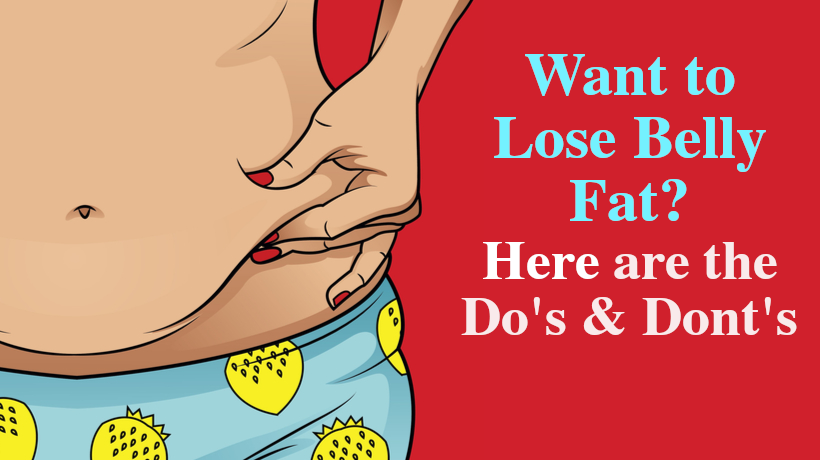Our belly flub may not be our favorite part of our body, but did you know that it could be harming your health? Excess belly fat can actually put you at risk for type 2 diabetes, heart disease, and other conditions says registered dietitian Franziska Spritzler, RD, CDE. But there are concrete steps you can take to whittle your waist and help your health:
Lose weight
Your body is one organism, so you can’t magically zap just belly fat. “Changing your lifestyle for the long term is the key to losing your belly fat and keeping it off…When you have healthy habits and eat real food, fat loss tends to follow as a natural side effect,” says Spritzler. But how do you lose weight? Everyone’s weight loss journey is different, but there are a few simple steps to help you get started.
Eat this
- Mediterranean diet: Rasa Kazlauskaite, MD and Sheila Dugan, MD suggests making your diet more like the “Mediterranean diet,” which focuses on eating things like vegetables, fruits, nuts, seeds, legumes, potatoes, whole grains, breads, herbs, spices, fish, seafood and extra virgin olive oil.
- Soluble fiber: “Studies show that this type of fiber promotes weight loss by helping you feel full, so you naturally eat less. It may also decrease the number of calories your body absorbs from food,” says Spritzler. Her go-to fiber foods include flax seeds, shirataki noodles, Brussels sprouts, avocados, legumes, and blackberries.
- Protein: High protein diets can decrease appetite, promote fullness, raise your metabolic rate, and retain muscle mass. Spritzler recommends these protein-rich foods: meat, fish, eggs, dairy, whey protein, and beans.
Not that
- Sugar: Spritzler says, “Observational studies show a relationship between high sugar intake and increased abdominal fat.” Even natural sugars, like honey, should be consumed sparingly. Liquid sugar, like soda or even fruit juice, should also be severely limited.
- Trans fats: “These fats have been linked to inflammation, heart disease, insulin resistance, and abdominal fat gain in observational and animal studies,” warns Spritzler. They’re in some kinds of margarine and spreads and often added to packaged foods, but many food producers have stopped using them.
- Carbs: Consuming large amounts of refined carbs is associated with excessive belly fat, says Spritzler. But, if you can’t cut back on carbs, replace them with good carbs like whole grains, legumes, or vegetables.
Do this
- Strength train: Exercising is good, but “targeting” your abdominal muscles won’t necessarily get rid of belly fat. “When you do sit-ups, you’re increasing muscles in the abdomen, but that doesn’t specifically target the visceral fat that is around the organs deeper in the body,” says W. Scott Butsch, MD. He suggests trying 20 minutes of whole-body strength training plus a cardio routine to strengthen muscle cells and increase fat burn.
- Cardio: Aerobic exercise can improve your health and burn calories, says Spritzler. A study found that as little as 80 minutes/week aerobic or resistance training had modest positive effects on preventing weight regain following a diet-induced weight loss. More importantly, both aerobic and resistance training prevented the regain of potentially harmful visceral fat.
- Sleep: Studies show that people who don’t get enough sleep tend to gain more weight, which may include belly fat. Spritzler suggests getting at least 7 hours of quality sleep every night.
Not that
- Drink alcohol: According to Spritzler, alcohol can make you gain belly fat. And alcohol is another form of those dangerous liquid calories, especially those delicious fruity, sugary, cocktails.
- Stress: “Research shows that high cortisol levels increase appetite and drive abdominal fat storage,” says Spriztler. Finding ways to relax and remove stressors from your life can benefit your belly.
Sources:
Exercise training prevents regain of visceral fat for 1-year following weight loss
20 Effective Tips to Lose Belly Fat (Backed by Science)
Is There ‘One Trick’ to Losing Belly Fat?



